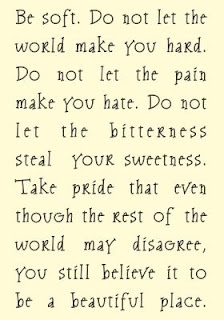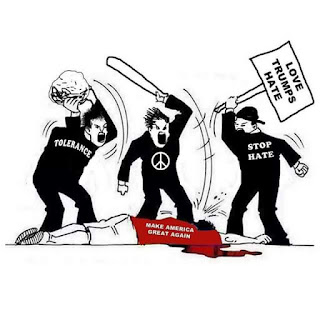written by Nick Squires, Rome
November 11, 2015
Seven of Italy’s best-known olive oil companies are being investigated for allegedly conning consumers by passing off inferior quality virgin olive oil as extra-virgin.
The alleged fraud was first discovered by an Italian consumer magazine in May and then investigated by the authorities.
They announced this week that of 20 brands tested in the laboratory by specialists from the Italian customs agency, nine were found to be lower quality oil.
The producers caught up in the investigation include big names such as Bertolli, Santa Sabina, Primadonna, which is sold through the discount supermarket chain Lidl, and Antica Badia, which is sold through another cheap supermarket chain, Eurospin. The others are Carapelli, Coricelli and Sasso.
They are accused of passing off the slightly lower quality virgin olive oil as extra-virgin – the highest quality and the most expensive.
Extra-virgin oil is made by crushing the olives soon after they are picked in a process that involves no chemicals, heat or industrial refining.
Virgin olive oil is cheaper and generally more acidic.
The alleged fraud is now being investigated by prosecutors based in Turin.
“The damage caused by this deceit is enormous, not just for consumers but also for the entire country and for the image of products that are made in Italy,” said Rosario Trefiletti, the president of Federconsumatori, a consumer association.
“It’s a shameful business that requires prompt action by the authorities.”
Maurizio Martina, the agriculture minister, said it was important for the investigation to proceed in order to “protect consumers, as well as the thousands of honest olive oil producers” in Italy.
“For months now we have been increasing quality controls. In 2014 our inspectors carried out 6,000 checks and confiscated oil worth 10 million euros. It’s vital to protect a sector as important as that of olive oil,” the minister said.
Italy is the world’s second largest producer of oil, after Spain.
Puglia is the most productive region, followed by Calabria and Sicily, all in the south of the country.
Codacons, Italy’s principal consumer association, said people who had bought the lower quality oil should be entitled to compensation from the companies involved.
“We invite any family that bought oil from any of the firms caught up in the investigation to demand compensation of up to 5,000 euros,” said Carlo Rienzi, the association’s president.
“If these offences are proven, the cost to consumers is enormous – not only the betrayal of trust but also the economic damage for people who have paid extra for an inferior product.”
Coldiretti, an organisation representing Italian farmers, said consumers should be suspicious of oil purporting to be extra-virgin that sold for just a few euros a bottle.
One of the companies under investigation disputed the analysis carried out first by the consumer magazine, called “Il Test”, and then by the authorities, saying they were based only on taste tests.
“These analyses, although carried out by professional tasters, are now widely considered not sufficient to evaluate the quality of an olive oil,” Coricelli said in a statement.
The firm said it had already launched legal action against the analysis conducted by the consumer publication and would “submit all the appropriate counter-analysis to prosecutors in Turin which will confirm that (our) behaviour was fair and correct.”
Italy has long-standing and seemingly endemic problems with fraud in its lucrative food and drink sector.
Air-dried ham produced in Eastern Europe is sometimes passed off as Italian prosciutto and buffalo mozzarella has been found to be made from cow’s milk rather than that of water buffaloes.
If the olive harvest is poor, oil is frequently supplemented with supplies from countries such as Greece and Tunisia, but sold as 100 per cent Italian.
In 2011 it was found that four out of five bottles of ‘Italian’ olive oil contained oil from other Mediterranean countries.
An investigation by customs officers and the Guardia di Finanza, or fraud squad, revealed that unscrupulous producers were mixing in oil from Greece, Spain, Morocco and Tunisia and passing it off as Italian.
“It’s a very widespread problem and it is on the increase,” Elga Baviera, a biologist and expert on food safety, told Adnkronos, an Italian news agency.
“The food production business is full of scams, notwithstanding the efforts of authorities to contain the phenomenon. It’s a business worth billions of euros a year.”
*************
The Local, Italy
written by Staff
June 21, 2016
In the latest move to protect one of its most famous exports, Italy has increased fines for misleading packaging on olive oil to up to €18,000.
Sanctions for manufacturers who flout the country's strict olive oil packaging rules have been significantly increased in a new government decree.
The move aims to protect the quality and status of Made in Italy oils, as well as protecting consumers' rights.
One of the most significant changes is a sixfold increase in the fine for 'country sounding' - reference to a geographical location which is not the actual origin of the oil.
Manufacturers falling foul of this rule could be fined €18,000, up from €2,000 - and the fine applies even if the label correctly states the origin.
So for example, packaging featuring the Italian flag prominently could be seen as misleading if the oil is not from Italy, even if the label states the correct origin.
Incorrect or missing information regarding the category of olive used could see manufacturers hit with fines of up to €15,000, compared to €2,500 previously.
But it's not just deceptive labelling that could get manufacturers in hot water; packaging which does not conform to the rules, for example the wrong kind of bottle-tops, could land oil makers fines of €4,800 rather than the current maximum of €150.
The decree was published in the Gazzetta Ufficiale - the Italian government's official journal of record - and will come into force from July 1st 2016.
Italy takes its olive oil seriously and has been battling against counterfeit oils for years.
Seven major Italian olive oil producers were investigated in 2015 after allegations they failed to abide by the rules on how olive oil should be produced and labelled.
***************
Forbes Magazine, USA
written by Cecilia Rodriguez
February 10, 2016
t’s reliably reported that 80% of the Italian olive oil on the market is fraudulent. Some experts think that percentage is an exaggeration. Others believe that the bigger problem is poor quality olive oil, deliberately mislabeled as virgin or extra virgin.
In any case, it’s likely that when you buy olive oil, you’re not buying what it says on the label.
Gangsters in the kitchen. Food Crime. Agromafia. Elite Food Police. FBI of Food. Police Food Squads. Hidden cameras. Wiretaps. Tampering. Corruption. Counterfiting. Smuggling.
These are terms frequently repeated in recent news stories related to olive oil.
“Much of the extra virgin Italian olive oil flooding the world’s market shelves is neither Italian, nor virgin,” the New York Times warns.
So unless you bought it directly from a producer or a certified distributor, the olive oil in your kitchen marked “Italian extra virgin” is very probably a fake. Either it’s low quality falsely marked as virgin or extra-virgin – and not even from Italy – or it’s been mixed with other oils of dubious provenance. At worst, it’s not olive oil at all but a vegetable oil disguised with coloring and aroma.
Yet, you bought it despite the fact that its low price should have tipped you off.
You want the worst news? Traditional, well-known brands haven’t escaped the evil: Many adulterated olive oils are sold under quality brand names.
Yet, supermarkets are full of them.
Oh, my mistake – that wasn’t the worst. Here it is: Even the labels bearing the coveted “Protected Designation of Origin” or PDO stamp indicating the precise geographical origin of a particular extra virgin olive oil to ensure the quality of that region’s agricultural products, and which are subjected to more strict controls, have not escaped the illegal trend.
Yet, governments continue to permit the entry and commercialization of those products.
For years, David Neuman, an olive oil expert and taster who is CEO of the Greek food company Gaea North America, has been warning about adulterated and mislabeled oils and finds it particularly frustrating that consumers, retailers and governments are turning a blind eye to the widespread fraud.
“There is good olive oil and bad olive oil everywhere, and there are many Italian producers who stand by their product,” he told me. “But the extended nature of the Italian problem is affecting all the rest of Europe.”
For him, the most serious issue is the fraud committed against the consumer: “The olive oil sold in supermarkets should meet the established standards. And that is not being upheld.”
Even in Italian supermarkets, the rate of fake olive oil on the shelves is estimated at 50%.
Let’s start with the most recent revelation, related to labels. Generally, if a label says that the virgin or extra-virgin olive oil comes from a controlled place of origin – Puglia, for example – it’s reasonable to expect that the product has passed through the required quality controls, particularly when it’s destined for export.
But despite the efforts of the Italian government to stop what’s become known as the agro mafia now controlling most of the olive oil production and marketing – as well as numerous campaigns by the region’s producers to regain their reputation and cleanse the “made in Italy” branding – a massive olive oil scandal is being uncovered in Southern Italy ( Puglia, Umbria and Campania). It involves olive oils from Syria, Turkey, Morocco and Tunisia, bottled and sold as authentic Italian extra virgin to foreign markets, particularly the United States and Japan.
That discovery came to light in a bigger undercover operation by the Italian police, dubbed “Mamma Mia,” that last week revealed another massive scam in the same region: Thousands of tons of low-quality oils from Spain and Greece also passed off as extra virgin Italian.
And that scandal followed yet another connected to an investigation of seven of the best-known Italian olive oil producers, including Bertoli, Sasso and Carapelli, allegedly selling fake olive oil as extra virgin “made in Italy.” The companies have vehemently denied the allegations.
A study last year by the National Consumer League found that six of 11 bottles of extra virgin olive oil from three major retailers—Whole Foods, Safeway SWY +% and Giant—failed to meet extra virgin requirements.
“America is the dumping ground of all those fraudulent operations,” Gaea’s David Neuman explained. “There are not enough resources to control the over 350,000 tons of olive oil entering the country. That’s why, even after the scandals, adulterated olive oil bottles are still on supermarket shelves.”
Neuman thinks that the problems with fake olive oils have been going on for so long that consumers have become accustomed to buying bad oils at low prices.
“Although consumers are embarrassed to admit it, they are supporting the situation,” he says. “The chain stores keep buying because it sells and everybody has become addicted to the low prices.”
That has serious effects on the market of authentic virgin and extra virgin olive oil that naturally are more expensive. “There’s no incentive for grocery stores to get the good stuff,” he added.
The situation has been exacerbated by Xylella Fastidiosa, a bacteria that kills olive trees – one million so far in Puglia, the largest olive oil producer – and threatens to extend to the rest of Italy and other Mediterranean producers.
The bacteria, compounded by bad weather, has devastated Europe’s olive harvest and raised the price for authentic olive oil by as much as 20% across the continent.
The Financial Times reports that in 2014-15, global olive oil production fell 26% to 2.4 million tons, after output in Spain and Italy had already been virtually halved, according to the International Olive Council.
As a consequence, an unexpected country has reaped benefits: Tunisia.
“The poor European harvests coincided with a bumper crop in Tunisia, catapulting the North African country to the top olive oil exporter spot and second-largest producer after Spain,” says the FT.
So the only oily recommendation I can offer you next time you’re puzzling over the olive oil selection at the market is this: Caveat emptor. Neuman’s advice is more detailed: Buy it, take it home, open it, smell it, swirl it in your mouth as you would a fine wine, and judge for yourself. If it doesn’t pass that test, take it back to the store and demand a refund.






































No comments:
Post a Comment